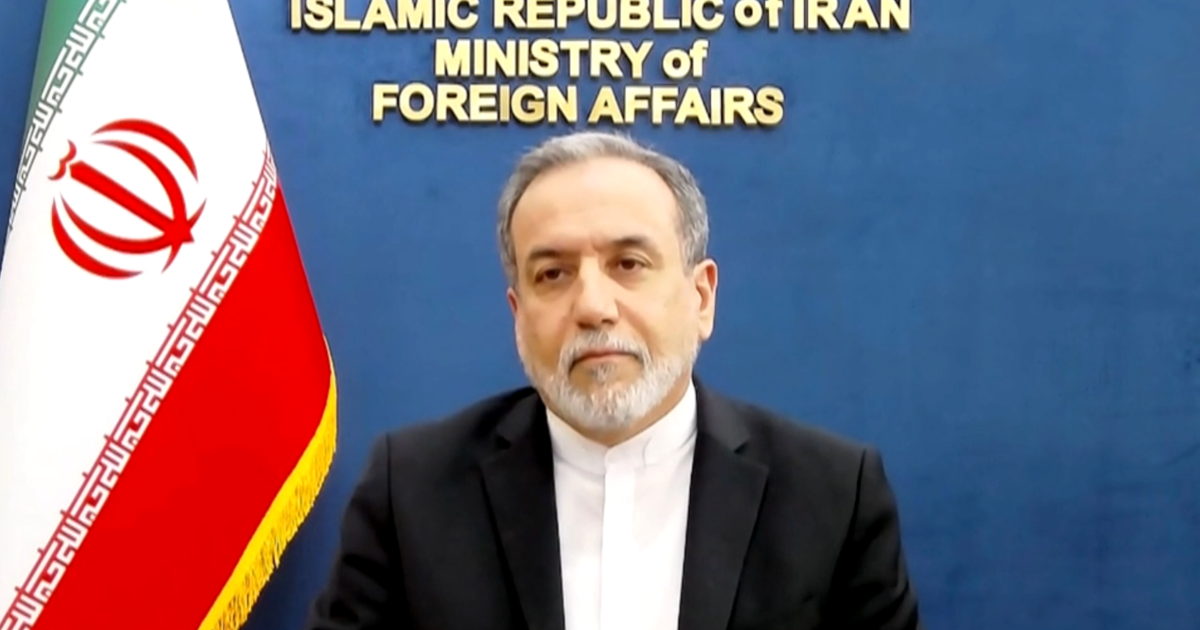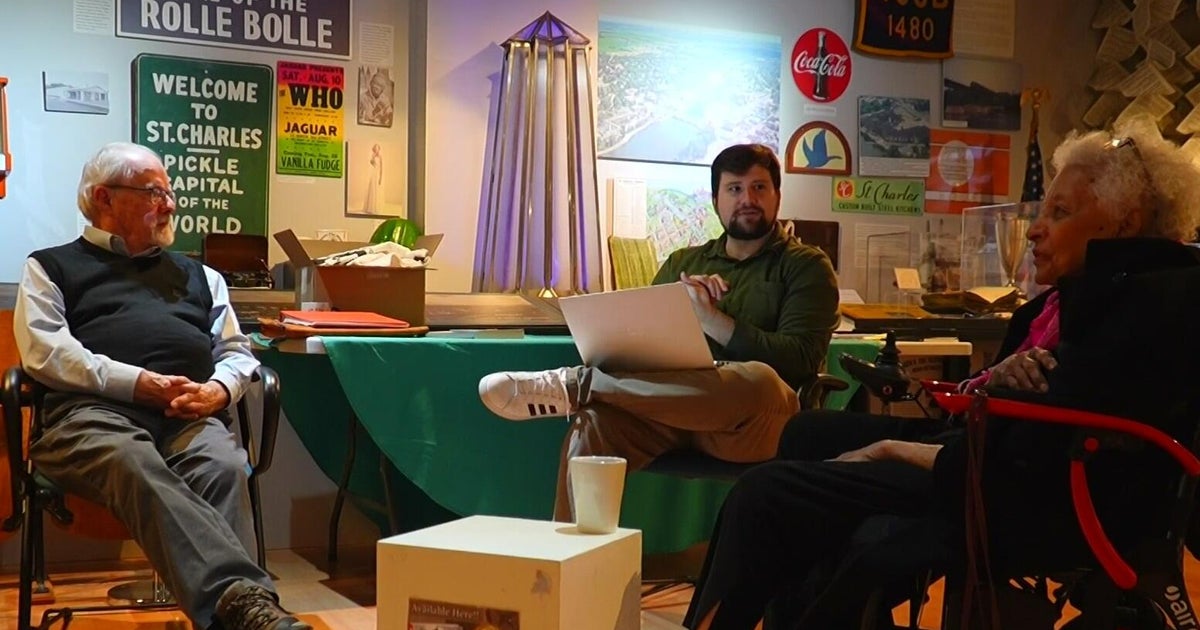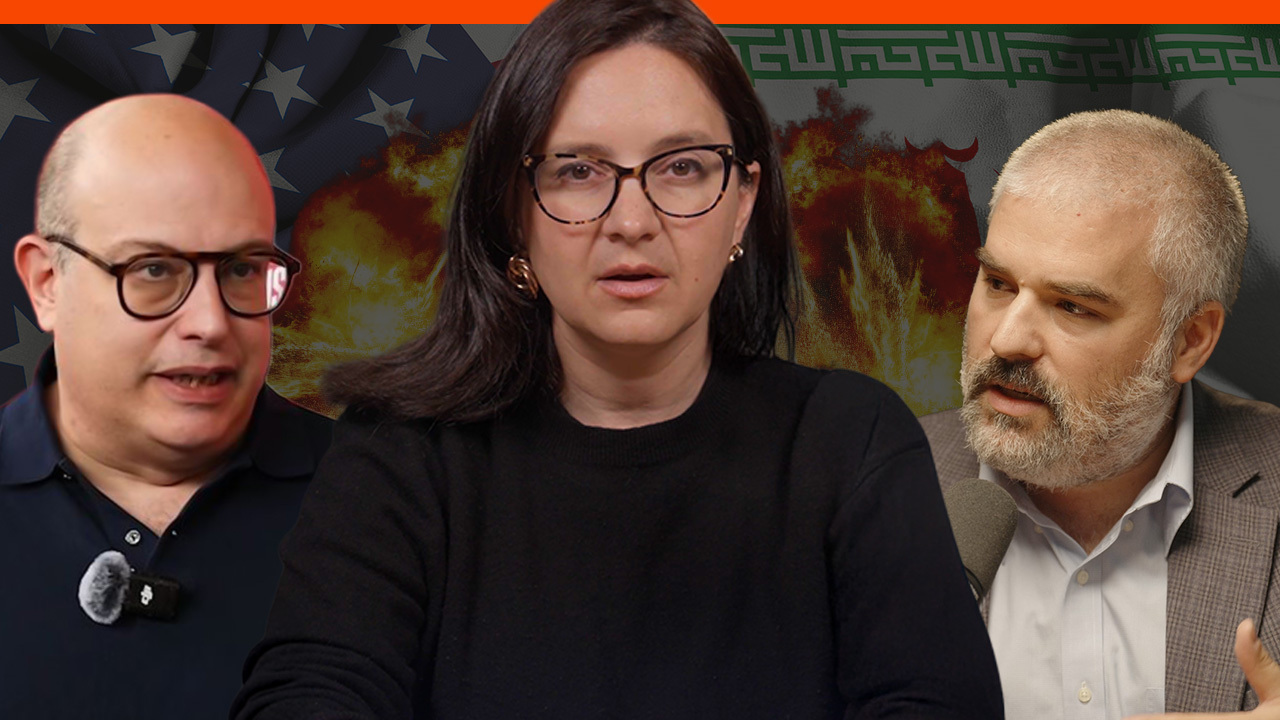Ex-U.S. envoy to Haiti tells CBS News why he took the "nuclear" option to quit on the Biden administration
Washington — As U.S. and Haitian authorities continue working to free 17 members of a missionary group kidnapped almost three weeks ago, there is new immediacy to the question of how to restore order inside a country in the grips of gang violence and a humanitarian crisis. The recently-resigned U.S. special envoy to Haiti who quit in September to protest the Biden administration's Haiti policy has explained to "Face the Nation" moderator Margaret Brennan why he believed the dramatic move was his only option even as desperate Haitians flee to American shores.
"I realized the only way I'd get the right attention was by going nuclear and resigning," long-time diplomat Daniel Foote told Brennan in his first interview since resigning.
Ambassador Foote told CBS News that his frustration with the Biden administration's "deeply flawed" Haiti policy had been mounting since late August or early September.
One of the first incidents to worry him specifically was the forced clearance in late September of a makeshift camp around a bridge near the Del Rio Port of Entry in Texas, which saw about 15,000 people, many of them Haitian migrants, deported without the opportunity to claim legal asylum.
"I learned about [the] deportations by the press, like everybody else, which was troubling to me," he told Brennan in the interview. He confirmed hearing reports from Homeland Security in the months prior that large numbers of Haitians might be among convoys of migrants moving through Central America toward the U.S. Southern border, but said he was not part of any State Department discussion about how to handle it.
That exclusion, and the decision to deport migrants back to dire conditions in Haiti — a situation he compared to a war zone — troubled him.
Due to the coronavirus pandemic, migrants who illegally enter the U.S. are being expelled without asylum hearings. About 17,000 Haitians crossed the border into the U.S. between September and October alone. More than 7,600 were sent back.
"The Haitian state cannot take care of the people that it currently has, and to put thousands or tens of thousands of additional desperate people into that situation is only going to fuel a terrible situation," said Foote. He added that the U.S. routinely urges other countries not to take such measures, which have been called a violation of international law by groups such as Human Rights Watch.
The Biden administration disputes Foote's version of events, but a second State Department official, Harold Koh, also resigned in protest over the government's immigration policy. The regulation, known as Title 42, is a border policy decided on by the Centers for Disease Control and Prevention, which has been in place since the COVID-19 pandemic began during the Trump administration.
Migrants are expected to continue fleeing due to the deteriorating security situation in Haiti. After the July assassination of President Jovenel Moïse, Ariel Henry stepped in and claimed the role of acting prime minister.
Asked whether he believes Henry played any role in Moïse's assassination, as has been alleged by a former chief prosecutor in Haiti, Foote said he couldn't answer directly.
"There are allegations — there are phone records that indicate that he had several conversations before and after the assassination with one of the prime suspects," said the ambassador, adding: "Ariel Henry has some questions to answer for his citizenry."
Henry denies the allegations. The State Department says it supports the current government but wants Haitians to decide their own fate. In the wake of a devastating earthquake in August, however, the White House dropped its call for new elections to be held this year. The State Department says there should be elections as soon as conditions on the ground allow it.
Foote said that while he didn't advocate for a large-scale U.S. military intervention in Haiti, he did propose sending "a company or so of U.S. special forces" into the Caribbean nation "to train an anti-gang task force within the Haitian national police. So, you're talking about 30 [to] 60 people."
The Biden administration opposes sending any troops. Foote agrees that any intervention to stabilize the country would only be of short-term benefit, and would be broadly opposed by the Haitian people.
But the security situation is rapidly deteriorating as criminal gangs gain ground. A senior State Department official told CBS News that there are probably between 3,000 and 4,000 gang members in Port-au-Prince, and that the gangs are in "loose coalition with each other and have ties of some type to political figures."
They have cut off the country's fuel supply, and they're taking hostages.
The group of missionaries affiliated with the Ohio-based Christian Aid Ministries, including 16 Americans and one Canadian, are being held by a gang called "400 Mawozo." The group has demanded a ransom of $1 million per hostage — $17 million in total. The White House says President Biden is briefed on the situation daily.
"The gangs are stronger than the police. The police are outgunned and overmatched right now," said Foote. "They need lethal aid. They need training… We can give that to them."
While the impoverished island country is not the type of national security crisis that grabs daily headlines, the real threat of a failed state in America's backyard may result in future migrant flows across the U.S. Southern border. Foote predicts that many of those who are being expelled will try again.
He told Brennan that the U.S. could live with a failed Haitian state next door, "but it's going to have a major negative impact on us."



